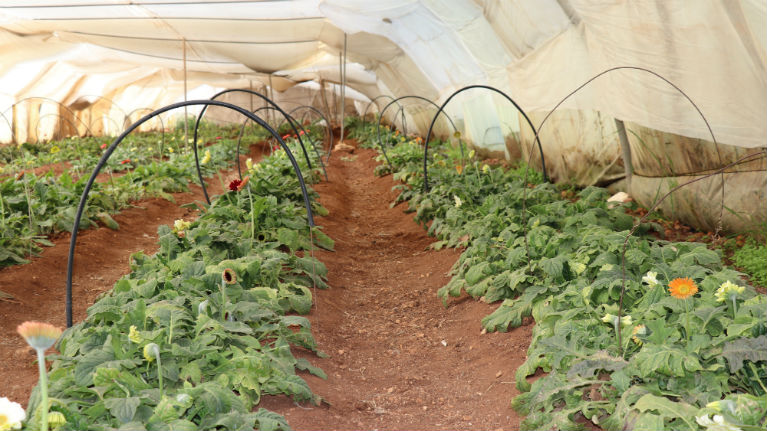Decent Work in Jordan’s Floriculture Sector
This project aims to improve working conditions, enhance skills and boost the employability of vulnerable Jordanians and Syrian refugees working in Jordan’s floriculture sector, while linking farm producers with new international and regional market opportunities.

Summary
Through this project, the International Labour Organization (ILO), with support from the Government of Australia, is implementing activities aimed at supporting vulnerable Jordanians and Syrian refugees working in Jordan’s floriculture sector, while improving productivity and market opportunities for producers.By working directly on the farm level with farm workers and their employers, the project seeks to enhance decent working conditions and productivity, by focusing on three main areas of action. These include investing in the development of workers’ skills to improve their employability and value in the floriculture labour market, through technical skills training for male and female agricultural workers; improving working conditions on flower farms through tailoring interventions based on a sector-specific decent work assessment; and facilitating producers’ access to production and export services, by linking producers and farmers to international experts and supporting the creation of green jobs in the sector.
The project, which will be implemented on targeted farms in the governorates of Madaba, Irbid, and Balqaa, will ensure the inclusion of a large percentage of women and people with disabilities in its activities.
Activities are closely implemented with various partners and stakeholders, including the Ministry of Labour, the Jordanian Association of Cut Flowers and Ornamental Plants, the Ministry of Agriculture, the Jordan Exporters and Producers Association, private sector actors and training providers.
Objectives
- Improve the employability of Syrian refugees and vulnerable Jordanian workers
- Improve working conditions and compliance with national legislation and International Labour Standards on targeted farms
- Support flower producers to tap into new market opportunities and value chains
Main Activities
Skills development and employability- Developing a technical skills training module to enhance male and female floriculture workers’ skills;
- Providing Syrian refugees and vulnerable Jordanians with training in the floriculture sector; and
- Providing career services to Syrian and Jordanian waged-workers in the floriculture sector.
- Raising awareness among local communities on the dangers of child labour and building capacities to refer cases to appropriate service providers;
- Developing and piloting contracts that provide decent work and adhere to the minimum wage on targeted farms;
- Developing and piloting a code of practice for effective labour inspection between farmers and labour inspectors on farms;
- Promoting occupational safety and health provisions and decent accommodation on floriculture farms; and
- Providing work injury insurance to workers, with a view to enrol them under the national Social Security Corporation.
- Identifying new market opportunities in the floriculture sector;
- Developing marketing materials for targeted floriculture farms and producers to enhance their visibility with national, regional and international buyers; and
- Establishing partnerships between floriculture producers and international export specialists.